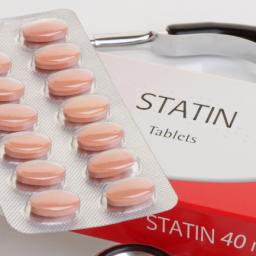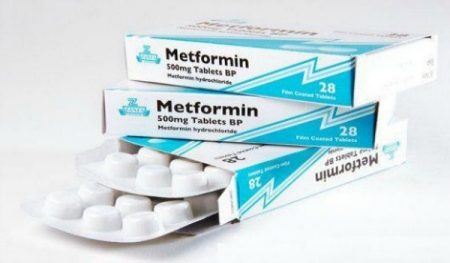Use of Hormonal Contraceptives May Increase Depression Risk in Young Women
Women, particularly adolescent women, are at increased risk of developing depression if they use hormonal contraceptives, according to a 2016 study in the journal JAMA Psychiatry. The study by Charlotte Wessel Skovlund and colleagues used data from a Danish registry of more than one million women between the ages of 15 and 34 who had no history of depression or other psychiatric disorders. During follow-up (which lasted an average of 6.4 years), 55% of the women were using or had recently used hormonal contraceptives. These women were more likely to be prescribed an antidepressant for the first time, and more likely to be diagnosed with depression compared to women who did not use hormonal contraceptives.
The increased risk of being prescribed an antidepressant varied by contraceptive type. The norgestrolmin patch increased risk by 2.0 times, and the etonogestrel vaginal ring did so by 1.6 times. The levonorgestrel intrauterine device (IUD) made an antidepressant prescription 1.4 times more likely. Progestin-only pills increased risk by 1.34 times and combined oral contraceptive pills increased it by 1.23 times compared to women who did not use oral contraceptives.
The relative risk peaked at around six months after starting hormonal contraceptives.
Patients aged 15–19 were particularly vulnerable to depression. The likelihood of receiving an antidepressant prescription was 1.8 times higher in teens taking combined pills, 2.2 times higher in those taking progestin-only pills, and 3 times higher in teens using hormonal methods of birth control that are not delivered orally compared to those who did not use hormonal contraceptives at all.
Safety of Atypical Antipsychotics in Pregnancy
A 2017 article in the Journal of Clinical Psychiatry systematically reviewed data on the risks related to schizophrenia, bipolar disorder, and treatment with atypical antipsychotic medication during pregnancy. The article by researcher Sarah Tosato and colleagues suggests that a mother’s illness may be more harmful to a fetus than treatment for that illness is.
The review analyzed 49 articles about illness-related and atypical antipsychotic–related risks in bipolar disorder and schizophrenia. Tosato and colleagues found that abrupt discontinuation of treatment led to a high risk of relapse in pregnant women with bipolar disorder or schizophrenia.
Schizophrenia was linked to a slight increase in obstetric complications for mothers, while both bipolar disorder and schizophrenia were linked to a slight increase in complications for newborns. Mothers ill with schizophrenia had the highest risk for serious complications, including stillbirth, neonatal or infant death, and intellectual disability in the child.
The researchers reported that untreated bipolar disorder and schizophrenia are risk factors for birth defects, but use of atypical antipsychotics is not. Children’s neurodevelopment also does not seem to be affected by mothers’ use of atypical antipsychotics during pregnancy.
The authors suggest that, given parents agree and understand any risks involved, the least harmful choice of action is to maintain treatment of women with bipolar disorder and schizophrenia during pregnancy at the safest minimum dosage to keep their illness at bay.
Birth Defects from Valproate Lower in Bipolar Disorder than in Epilepsy
 The anticonvulsant valproate increases the risk of serious birth defects in fetuses exposed to it. However, a 2017 report by ANSM, France’s agency for health and product safety, and its national insurance fund for employed workers shows that these risks are lower for women taking valproate for bipolar disorder than for women taking valproate for epilepsy.
The anticonvulsant valproate increases the risk of serious birth defects in fetuses exposed to it. However, a 2017 report by ANSM, France’s agency for health and product safety, and its national insurance fund for employed workers shows that these risks are lower for women taking valproate for bipolar disorder than for women taking valproate for epilepsy.
In France, the risk of a major fetal malformation was 10.2 per 1000 women in the general population, about twice that (22.2 per 1000) in women taking valproate for bipolar disorder, and about 4 times higher (46.5 per 1000) in women taking valproate for epilepsy. The authors suggest that treatment for bipolar disorder may be more likely to be interrupted during pregnancy, and this could explain the different levels of risk by diagnosis.
Among the risks of defects in the fetuses of women being treated with valproate for epilepsy, the risk of a ventricular septal defect (a hole in the wall separating the lower heart chambers) was 11.2% compared to 2.7% in fetuses not exposed to valproate, while risk of an atrial septal defect (a hole in the wall separating the upper heart chambers) was 19.1% in the fetuses of those prescribed valproate for epilepsy compared to 1.9% in unexposed fetuses. Risk of hypospadias (placement of the urethra opening on the underside of the penis rather than its end) was 22.7% compared to 4.8% in the general population.
Risks of a major malformation were dose dependent in those with epilepsy (but interestingly, not in those with bipolar disorder), meaning the more valproate patients with epilepsy took, the higher their risk of a fetus with birth defects.
The only birth defects that were more common in the fetuses of women taking valproate for bipolar disorder than in fetuses not exposed to valproate were hypospadias (17.5% risk compared to 4.8% in the general population) and craniostenosis, a deformity of the skull (4.2% risk compared to 0.4% in the general population).
The relative safety of valproate in women being treated for bipolar disorder compared to those being treated for epilepsy is good news for some. However, fetal exposure to valproate has also been linked to deficits in cognitive development.
The risk of spina bifida, which causes lifetime paralysis, in a fetus may no longer be such a catastrophic issue for women taking valproate for bipolar disorder (where the risk did not exceed that of the general population), as was once assumed based on data from women with epilepsy (where the risk is usually 2-4%, but was 8% in this French study). This may be of some comfort to women with bipolar disorder who require valproate treatment to remain stable and wish to become pregnant or in those who experience an unplanned pregnancy.
Antidepressant Use in Pregnancy Does Not Increase Autism Risk
 Two large observational studies published in the journal JAMA in 2017 find no link between antidepressant use during pregnancy and risk of an autism spectrum disorder. Previous studies had suggested a link between the two, but may not have sufficiently accounted for confounding factors. In both new studies, autism rates did not differ between siblings exposed to antidepressants in utero and those who were not exposed.
Two large observational studies published in the journal JAMA in 2017 find no link between antidepressant use during pregnancy and risk of an autism spectrum disorder. Previous studies had suggested a link between the two, but may not have sufficiently accounted for confounding factors. In both new studies, autism rates did not differ between siblings exposed to antidepressants in utero and those who were not exposed.
One of the studies, by researcher Ayesha C. Sujan and colleagues, analyzed exposure to antidepressants in the first trimester and neurodevelopmental outcomes in almost 1.6 million Swedish children. Antidepressant use did slightly increase the chance of a preterm birth, but was not linked to autism spectrum disorder, attention-deficit hyperactivity disorder (ADHD), or small size of the fetus.
The researchers suggested that doctors and patients work together to decide how depression should be treated during pregnancy, based on severity of the depression, treatment history, and access to services.
The other study, by researcher Hilary K. Brown and colleagues, analyzed 36,000 births in Ontario, Canada and found no increased risk of autism spectrum disorder based on antidepressant exposure in utero. The study controlled for 500 characteristics such as mother’s education, age, and health history.
The journal JAMA Pediatrics also published a meta-analysis and review of 10 studies on the subject, finding that a woman’s history of psychiatric disorders weakened any link between antidepressant use during pregnancy and risk of autism spectrum disorder in her children. This implies that the underlying illness, not its treatment, may be responsible if there is any link between depression and autism. The meta-analysis was carried out by researcher Antonia Mezzacappa and colleagues.
Some Drugs for Hypertension Come with Greater Risk of Mood Disorders
 Depression and bipolar disorder have been linked to atherosclerosis, the accumulation of fats, cholesterol, and plaques on the walls of the arteries. There is some evidence that drugs to treat hypertension may contribute to mood disorders. A large study published in the journal Hypertension in 2016 suggests that certain classes of anti-hypertensive drugs, calcium antagonists and beta blockers, may increase risk of mood disorders compared to other treatments for hypertension.
Depression and bipolar disorder have been linked to atherosclerosis, the accumulation of fats, cholesterol, and plaques on the walls of the arteries. There is some evidence that drugs to treat hypertension may contribute to mood disorders. A large study published in the journal Hypertension in 2016 suggests that certain classes of anti-hypertensive drugs, calcium antagonists and beta blockers, may increase risk of mood disorders compared to other treatments for hypertension.
The study by researcher Angela H. Boal and colleagues used data from a hospital database to identify 144,066 patients between the ages of 40 and 80 who had taken anti-hypertensive drugs for more than 90 days. There was an independent linear connection between receiving a prescription for hypertenstion and being diagnosed with a mood disorder. Patients who took angiotensin-converting enzyme inhibitors or angiotensin receptor blocking drugs had the lowest rates of mood disorder admissions. Those taking calcium antagonists or beta blockers had an increased risk of a mood disorder, while those taking thiazide diuretics and those not taking anti-hypertensive drugs had no change in risk.
Statins Have Many Benefits
 Patients with mood disorders and elevated lipids, cholesterol, or triglycerides can get several benefits by taking statin drugs. Patients with depression are at increased risk for cardiovascular disease, heart attack, and stroke, and statins can lower these risks. Statins lower cholesterol and triglycerides.
Patients with mood disorders and elevated lipids, cholesterol, or triglycerides can get several benefits by taking statin drugs. Patients with depression are at increased risk for cardiovascular disease, heart attack, and stroke, and statins can lower these risks. Statins lower cholesterol and triglycerides.
Compared to women not taking statins, women taking this class of medications have a lower risk of depression. Men taking statins have a lower incidence of depression following a heart attack than men who are not taking statins.
Several studies over the past two decades have suggested that statins can also decrease the incidence of Alzheimer’s disease, though a 2017 article by Julie M. Zissimopoulos and colleagues in the journal JAMA Neurology suggested the effectiveness of statins in preventing Alzheimer’s may depend on the race and gender of the person taking them. People with depression are at increased risk for Alzheimer’s.
Editor’s Note: Given these many benefits, it may be a good idea for patients with depression or bipolar disorder and high lipid levels to talk to their physician about whether statins would be a helpful treatment for them.
Preventing Metformin Side Effects
Depression is a risk factor for type 2 diabetes, and the drug metformin is a common treatment for diabetes. In a 2016 article in the Journal of Clinical Psychiatry, researcher Chittaranjan Andrade suggests ways of minimizing side effects from metformin.
Gastrointestinal side effects such as nausea, vomiting, abdominal discomfort, flatulence, and diarrhea are common on metformin. In the article, Andrade writes, “These are less likely to occur with gradual dose uptitration, administration of the drug with meals, and use of a time-release formulation.”
Lactic acidosis, a buildup of lactate in the body that can result in muscle pain, burning, and other symptoms, is a rare side effect of metformin. Avoiding prescribing metformin to people with impaired kidney, liver, or cardiac functioning and other risk factors can prevent lactic acidosis.
Vitamin B12 absorption can also be affected by long-term metformin use. Andrade suggests that rather than waiting for a vitamin deficiency to be identified, a proactive approach should be taken. Long-term metformin users could be given an annual intramuscular shot of vitamin B12.
Topiramate Plus Antipsychotic Medication Better Than Antipsychotics Alone for Schizophrenia Spectrum Disorders
 A 2016 meta-analysis has shown that the combination of the anticonvulsant topiramate and antipsychotic medication reduces symptoms of schizophrenia spectrum disorders more than antipsychotic medication alone. Researchers led by Christoph U. Correll analyzed the results of eight studies in which the topiramate-antipsychotic combination was compared to antipsychotics alone or with placebo.
A 2016 meta-analysis has shown that the combination of the anticonvulsant topiramate and antipsychotic medication reduces symptoms of schizophrenia spectrum disorders more than antipsychotic medication alone. Researchers led by Christoph U. Correll analyzed the results of eight studies in which the topiramate-antipsychotic combination was compared to antipsychotics alone or with placebo.
The combination of topiramate and antipsychotic medication was superior at reducing general psychopathology, including both negative and positive symptoms of schizophrenia. The combination was also associated with lower body weight and body mass index (BMI) compared to antipsychotics alone.
The studies included in the meta-analysis used a variety of antipsychotic medications. When these were compared, the combination of topiramate and clozapine was more effective than other combinations at reducing psychopathology. However, the combination of topiramate and clozapine was also associated with less weight loss than combinations using other antipsychotics.
In terms of side effects, topiramate was associated with more paresthesia (a burning or prickling sensation, often in the hands or feet) than placebo.
The study was published in the Journal of Clinical Psychiatry.
FDA Approves Treatment for Tardive Dyskinesia
 A new drug valbenazine (trade name Ingrezza) has been approved by the US Food and Drug Administration for the treatment of tardive dyskinesia. Tardive dyskinesia, a side effect of long-term use of antipsychotic medication, consists of involuntary movements of the tongue, face, torso, arms, and legs. It can interfere with walking, talking, and breathing.
A new drug valbenazine (trade name Ingrezza) has been approved by the US Food and Drug Administration for the treatment of tardive dyskinesia. Tardive dyskinesia, a side effect of long-term use of antipsychotic medication, consists of involuntary movements of the tongue, face, torso, arms, and legs. It can interfere with walking, talking, and breathing.
The approval followed 20 clinical trials of valbenazine that included a total of more than 1000 participants who had symptoms of tardive dyskinesia in addition to schizophrenia, schizoaffective disorder, or bipolar disorder.
In a 2017 article in the American Journal of Psychiatry, researcher Robert A. Hauser and colleagues reported that patients who received 80 mg/day of valbenazine had a significant reduction in tardive dyskinesia symptoms after six weeks compared to those who received placebo. Participants who received 40 mg/day of valbenazine also had reductions in symptoms, although not as dramatic as with the higher dose.
Serious side effects of valbenazine include sleepiness and lengthening of the QT interval, which can increase heart arrhythmias. The FDA notes that people who already have abnormal heartbeats due to a long QT interval should not take valbenazine. In addition, people taking the drug should avoid driving or operating heavy machinery until they know how valbenazine affects them.
Lithium Responders and Non-Responders Have Different Neuron Characteristics
After hyperpolarization (via Wikimedia Commons)
A 2017 study in the journal Molecular Psychiatry suggests that by observing the neurons of a person with bipolar disorder, you can predict whether they will respond to lithium treatment. The drug is effective in approximately 30% of those to whom it is prescribed.
Researchers led by Shani Stern and Renata Santos used stem cell research to analyze neurons from people with bipolar disorder and healthy controls.
People with bipolar disorder shared some neuron features, namely a large, fast after-hyperpolarization (a phase in which the cell’s membrane changes), which is followed by a resting period before the neuron can fire again. The large, fast hyperpolarization in people with bipolar disorder speeds up this cycle, leading to fast and sustained neuron firing. This replicated previous findings by the same researchers, which found that people with bipolar disorder are more sensitive to stimuli. In people with bipolar disorder, the threshold for a neuron to fire drops with each subsequent after-hyperpolarization.
Chronic lithium treatment reduced this hyperexcitability in some patients—and these were the patients who had a good response to lithium treatment.
Among the study participants with bipolar disorder, there were differences in the neuron profiles of those who responded well to lithium versus those who did not.
Stern and colleagues programmed a computer to recognize the electrophysiological features of neurons from lithium responders and non-responders. The computer could then analyze the neurons of a patient whose response to lithium was unknown and predict with a greater than 92% success rate whether that patient had responded well to lithium treatment.




